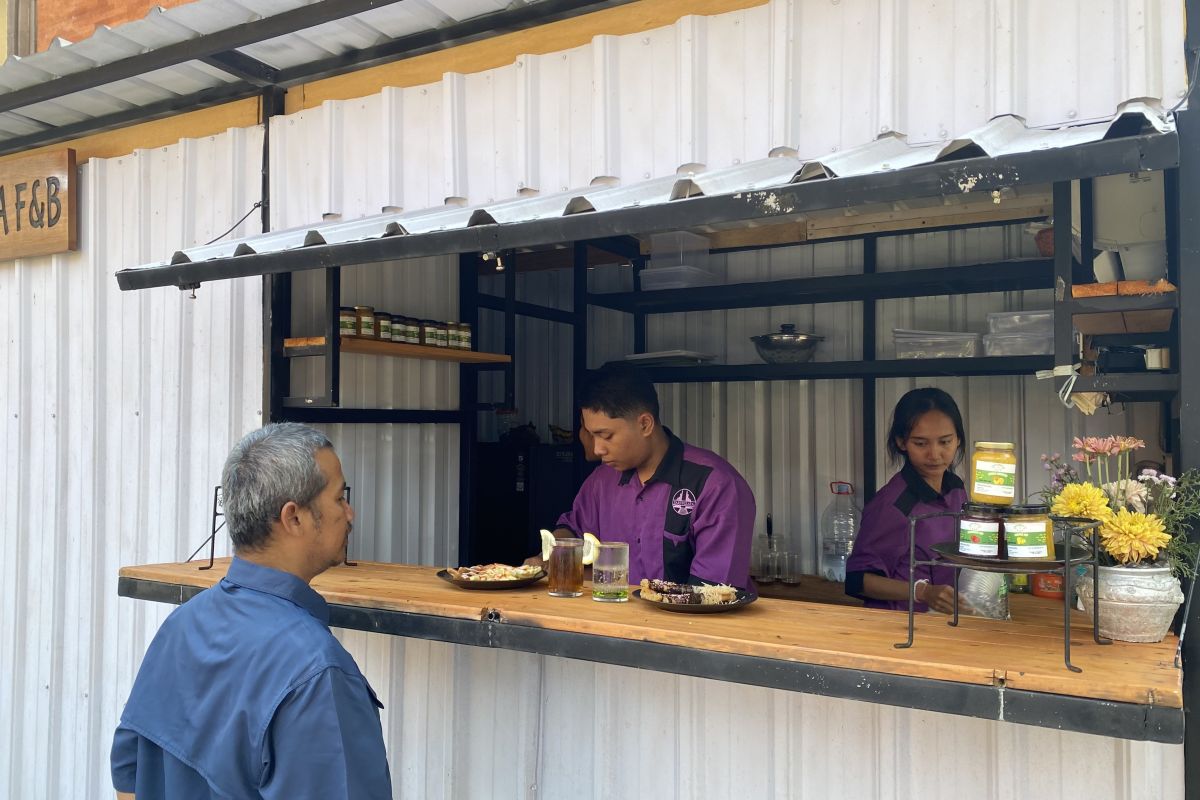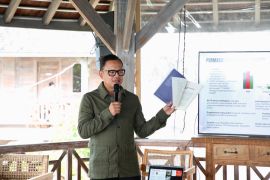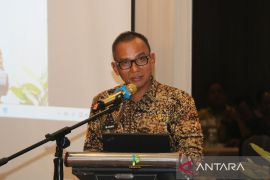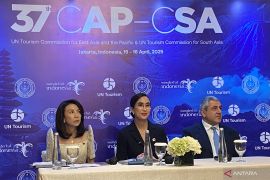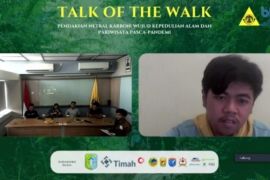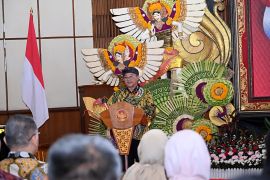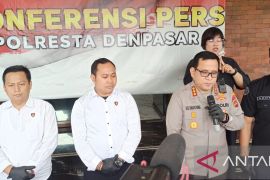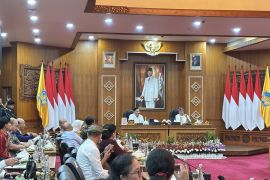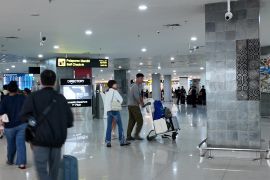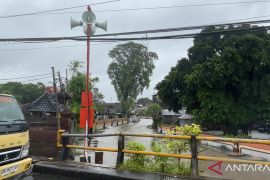Development of the tourism sector is deemed a strategy to improve the economy and welfare. Thus, several countries are working on myriad aspects that can boost tourism attractiveness.
One of the aspects is green tourism that prioritizes environmental sustainability.
Sustainable tourism is deemed crucial, as the world is currently striving to achieve the Sustainable Development Goals (SDGs) by 2030.
In its implementation, sustainable tourism does not only prioritize profits in the present but also guarantees future needs, in relation to environmental, economic, social, and cultural resources.
Sustainability is viewed as a fundamental requirement for countries striving to grow their tourism industry because if they do not follow the development, there is the potential for tourist flows moving to other countries.
Developing sustainable tourism is not as easy as combining social and cultural aspects that exist in society, like when developing non-sustainable tourism.
In the process of developing sustainable tourism products, planning that will go in accordance with the local environment in the future, be it in terms of community, social, cultural, and economic aspects, is needed.
The target can be achieved with a leap to start developing sustainable tourism, namely through education and training. Educating and training people involved in tourism is the first strategic step that must be taken to advance sustainable tourism.
Related news: Tourists turning to sustainable destinations after pandemic: Minister
Building human resources
Sustainable tourism has an integrated concept of development involving three dimensions, namely economic growth, social justice, and environmental protection.
In Indonesia itself, there are several tourist destinations that promote green tourism, including in Bali, such as those that feature the conservation of biodiversity, local arts and culture in villages, as well as authentic local culinary delights.
Bali's efforts to develop tourism villages that are environmentally friendly have been implemented through various regulations, including Bali Governor's Regulation No.97 of 2018 regarding Restrictions on the Piling of Single-Use Plastic Waste.
The regulation has been able to reduce dependence on plastic use in five-star hotels, restaurants, and malls by more than 80 percent, though the restrictions have not been fully implemented in traditional markets.
Bali has also massively used renewable energy sources in tourism activities, which is regulated in Bali Governor's Regulation No.48 of 2019 Regarding the Use of Battery-Based Electric Vehicles.
Bali's efforts to build a sustainable tourism ecosystem also need thorough preparation, which is started from the grassroots level.
In this regard, the role of human resources that are involved in sustainable tourism is the most important factor in realizing Bali as an environmentally-friendly tourist destination in the eyes of tourists.
It requires basic education that is able to form awareness regarding the importance of green tourism, so that human resources understand the efforts they can make to support sustainable tourism.
This has been the basis for the Bali State Polytechnic (PNB) to use green tourism as the core of its educational curriculum provided to students in all programs.
PNB's efforts to include sustainability aspects in every lesson started when the polytechnic received a Polytechnic Education Development Project (PEDP) grant from the Asian Development Bank (ADB).
The grant encouraged PNB to have a different advantage from other polytechnics in Indonesia, such as the Surabaya State Electronics Polytechnic, with electronics, and the Bandung State Polytechnic, with construction.
Considering the growing awareness of green tourism in Bali, PNB chose green tourism as its advantage.
The green tourism curriculum has made PNB receive grant funds from various countries that support sustainable aspects, such as from the Swiss Government for the field of renewable energy skill development and the Dutch Government for strengthening the renewable energy training center.
Due to its green tourism initiative, PNB also received funding grants through matching funds and competitive funds from the Ministry of Education, Culture, Research and Technology.
As many as 12 lecturers in PNB, with their sustainability-concept project proposals in cooperation with partners, received a grant fund of Rp2.78 billion (around US$175,070) from the ministry.
These proposals include the development of a crystal ice block machine with sustainable technology, the development of conservation tourism in the Munduk Village area using an ergonomics approach, and the development of green infrastructure to support village eco-tourism in Bali.
They also include green bean sorting machine innovation, the development of solar-powered refrigerated truck containers with electric technology, and the creation of performing arts that are synergized with metaverse-based promotional designs.
Related news: Minister Uno lauds Bali Waste Cycle for easing environmental burden
Green tourism acceleration in PNB
PNB does not only implement the sustainability aspect in its tourism program but also in other academic programs, such as civil engineering, mechanical engineering, accounting, electrical engineering, and business administration.
In the field of technology, electrical engineering, mechanical engineering, and civil engineering departments are synergizing in developing energy-efficient hotel utilities using renewable energy or clean energy.
For instance, the electrical engineering and mechanical engineering departments are currently developing automation engineering for the operations of renewable energy, namely solar power and hydropower.
The civil engineering department is currently developing a green building, including creating green materials, namely by using recycled materials to be environmentally friendly.
Students majoring in business administration and accounting are taught to utilize digitalization to strengthen village credit institutions (LPD), considering that in Bali, more than 1,400 LPDs are still lacking in terms of technology utilization.
In this regard, students majoring in business administration and accounting are mandated to digitize LPDs through a system innovation, in which one of the expected results is paperless transactions.
Those academic departments strive to build an environmentally friendly tourism ecosystem in line with the Bali Provincial Government's road map for clean energy and reduction of the use of non-recyclable waste.
Not only developing the potential for green tourism in the campus environment, PNB lecturers and students also apply their knowledge to the community, so that sustainable tourism can be implemented fully in Bali.
Implementation of the green tourism curriculum in the polytechnic is inseparable from the support given by its industry partners, such as various famous hotels and rural communities in Bali.
Some of the partners are The Apurva Kempinski and The St. Regis Bali resorts, which are expected to offer real-life work experience for students to learn and apply their knowledge.
PNB aims to always accept input and adapt to the needs of industrial partners, so that students can also adapt according to actual conditions in the field.
PNB's partnership patterns are also tailored to the potential of each partner.
For example, on account of the cotton plantation potential in Karangasem, Bali, students and lecturers in PNB synergized to give a solution for the spinning process, namely through a seed-separator technology.
PNB's efforts are also deemed able to strengthen village potential as well as the independent village program that will positively impact the welfare of the community.
Innovation from the green tourism curriculum can also be seen in the field of food and beverage, which is displayed by a student of the Tourism Business Management program of PNB, I Made Alan.
Alan, who is currently in his fifth semester, is competent in the field of bartending, with a focus on the green tourism aspect, namely combining drinks made from natural ingredients with alcohol.
Alan uses kecombrang (Etlingera elatior), salak (snake fruit/ Salacca zalacca), ginger juice, ginger syrup, lemon juice, and ginger wine to make a variety of unique and interesting drinks and is served in wooden glasses. Alan's creativity has made him a mixology champion in various competitions since 2021, with a total of 10 medals.
Related news: Indonesia to revive old wisdom to promote sustainable tourism
Editor: Yuni Arisandy Sinaga
Copyright © ANTARA 2023
